Handy, Mobiltelefon:+86-311-808-126-83
Email:info@ydcastings.com
Automotive Casting-Hebei Yuanda Trade Co., Ltd.|Precision Casting&Lightweight Solutions
Automotive manufacturing has evolved significantly with advancements in metal casting and processing technologies. These innovations play a crucial role in enhancing vehicle performance, reducing environmental impact, and achieving lightweight design goals. This article delves into the latest developments in automotive casting technologies, highlighting their benefits, technical specifications, and real-world applications. We also explore the role of Hebei Yuanda Trade Co., Ltd. in advancing the industry.
Key Technologies in Automotive Metal Casting
1. Casting Technology: The Foundation of Automotive Parts
Casting is a fundamental process in automotive manufacturing, accounting for approximately 15-20% of all vehicle components. It is primarily used for producing power system components and structural parts. In developed countries like the United States and Europe, casting technologies are highly advanced, offering superior quality, efficiency, and environmental sustainability. These regions leverage digital tools to optimize casting design, achieving scrap rates as low as 2-5%.
By contrast, China's automotive casting industry, while producing large volumes, often focuses on lower-value "black castings" with less technical sophistication. However, the gap is narrowing as manufacturers adopt modern techniques.
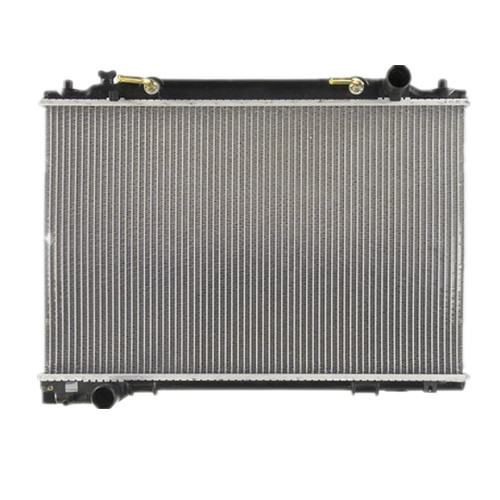
2. Die Casting: Precision and Performance
Die casting is a critical process in modern automotive production, where molten metal is injected into molds under high pressure to create precise components. This method ensures dimensional accuracy and surface quality, enabling better integration with other vehicle parts. Common materials used include aluminum and zinc alloys, which offer excellent strength and durability.
The benefits of die casting extend to improved vehicle stability and safety. For example, automotive electric water pumps manufactured through die casting are lightweight yet robust, contributing to fuel efficiency and reduced emissions.
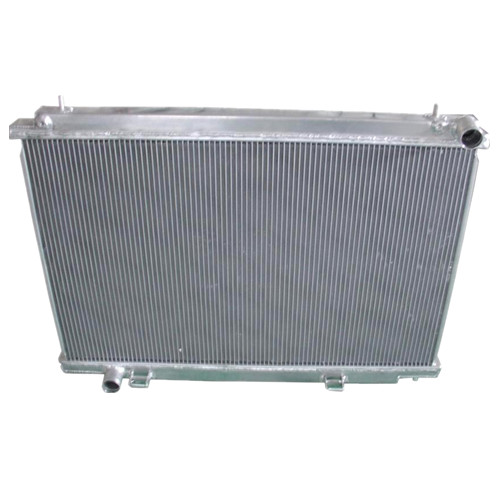
3. Semi-Solid Processing: Innovating Magnesium Alloys
Semi-solid processing is a revolutionary technique for producing magnesium and aluminum alloy castings. This method addresses the challenges of traditional die casting, such as poor performance and high costs. It allows for thinner wall thicknesses (1-1.5mm) and improved mold design, making it ideal for lightweight automotive components.
Magnesium alloys, in particular, are gaining traction due to their high strength-to-weight ratio, heat resistance, and corrosion resistance. According to National Institute of Standards and Technology (NIST), advancements in magnesium alloy casting are critical for achieving energy-efficient vehicles. The global annual growth rate for magnesium die casting in the U.S. and Europe is projected to reach 25%.
4. Integrated Design: Reducing Weight and Cost
Integrated design is a growing trend in automotive casting, focusing on optimizing part structures to reduce weight and manufacturing complexity. By consolidating multiple components into a single casting, manufacturers can cut down on machining processes and material usage. This approach aligns with the industry's push for energy efficiency and cost reduction.
For instance, engine manifolds produced through integrated casting are lighter and more durable, enhancing engine performance while lowering production costs.
Technical Specifications of Automotive Casting Products
| Parameter | Einzelheiten |
|---|---|
| Material | ADC-12, A380 |
| Process | High-pressure casting |
| Weight Range | 0.5-2 kg |
| Scrap Rate | 2-5% (advanced technologies) |
| Applications | Engine components, water pumps, manifolds |
Applications of Advanced Casting Technologies
Modern casting technologies are transforming various automotive applications:
- Powertrain Components: High-strength alloys ensure durability in engines and transmissions.
- Electronics Cooling: Automotive electric water pumps efficiently manage heat in electric vehicles (EVs).
- Structural Parts: Lightweight magnesium and aluminum castings improve fuel efficiency and safety.
Hebei Yuanda Trade Co., Ltd.: A Leader in Automotive Solutions
Based in Hebei, China, Hebei Yuanda Trade Co., Ltd. specializes in producing high-quality automotive casting products. The company leverages advanced technologies to deliver components that meet international standards. Their product range includes automobile water pumps, engine manifolds, Und automotive electric water pumps, which are widely used in both traditional and electric vehicles.
Yuanda's commitment to innovation is evident in its adoption of semi-solid processing and integrated design principles. By aligning with global trends, the company is positioned to meet the growing demand for lightweight, high-performance automotive parts.
Environmental and Economic Impact
Advanced casting technologies contribute to sustainability by reducing material waste and energy consumption. For example, the low scrap rates achieved through digital design optimization minimize environmental pollution. Additionally, lightweight components lower fuel consumption, directly reducing greenhouse gas emissions.
From an economic perspective, these technologies enable manufacturers to cut production costs while maintaining quality. As highlighted by NIST research, the integration of digital tools in casting processes is a key driver for competitiveness in the automotive industry.
Future Trends and Challenges
The automotive casting industry faces several challenges, including the need for further material innovation and the adoption of greener practices. However, opportunities abound in emerging markets, particularly in EV production. According to NIST, future advancements will focus on:
- Developing ultra-lightweight materials
- Enhancing automation in casting processes
- Improving recycling methods for metal alloys
Conclusion
Automotive casting technologies are at the forefront of innovation, driving the industry toward greater efficiency, sustainability, and performance. Companies like Hebei Yuanda Trade Co., Ltd. are pivotal in translating these advancements into practical solutions. As the demand for eco-friendly and high-performance vehicles grows, the role of advanced casting technologies will only become more critical.
References
National Institute of Standards and Technology (NIST). (n.d.). Retrieved from https://www.nist.gov/.
Hebei Yuanda Trade Co., Ltd. (n.d.). Automobile Accessories. Retrieved from https://www.ydcastings.com/automobile-accessories.html.
-
Materials Used in Manufacturing Cap End Pipe FittingsNachrichtNov.24,2025
-
Material Properties of CF8M CastingNachrichtNov.24,2025
-
How to Inspect Pump Cap Ends for DamageNachrichtNov.21,2025
-
Backward Curved Impeller – Efficient Airflow Solutions for Industry | YD CastingsNachrichtNov.21,2025
-
Automobile Water Pump - Efficient, Quiet, Durable & ElectricNachrichtNov.21,2025
-
Impeller for Pumps – High-Efficiency, Durable, OEM-ReadyNachrichtNov.21,2025
Automotive Casting-Hebei Yuanda Trade Co., Ltd.|Precision Casting&Lightweight Solutions
Automotive manufacturing has evolved significantly with advancements in metal casting and processing technologies. These innovations play a crucial role in enhancing vehicle performance, reducing environmental impact, and achieving lightweight design goals. This article delves into the latest developments in automotive casting technologies, highlighting their benefits, technical specifications, and real-world applications. We also explore the role of Hebei Yuanda Trade Co., Ltd. in advancing the industry.
Key Technologies in Automotive Metal Casting
1. Casting Technology: The Foundation of Automotive Parts
Casting is a fundamental process in automotive manufacturing, accounting for approximately 15-20% of all vehicle components. It is primarily used for producing power system components and structural parts. In developed countries like the United States and Europe, casting technologies are highly advanced, offering superior quality, efficiency, and environmental sustainability. These regions leverage digital tools to optimize casting design, achieving scrap rates as low as 2-5%.
By contrast, China's automotive casting industry, while producing large volumes, often focuses on lower-value "black castings" with less technical sophistication. However, the gap is narrowing as manufacturers adopt modern techniques.
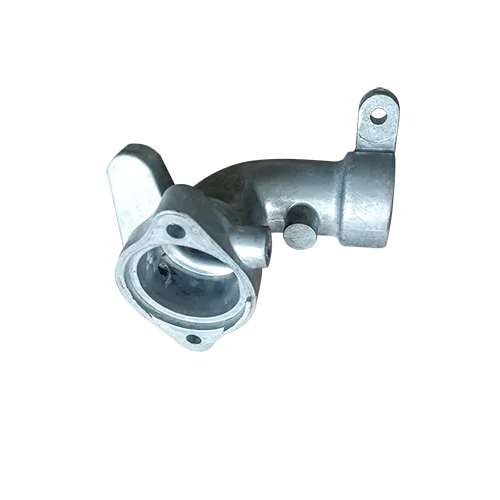
2. Die Casting: Precision and Performance
Die casting is a critical process in modern automotive production, where molten metal is injected into molds under high pressure to create precise components. This method ensures dimensional accuracy and surface quality, enabling better integration with other vehicle parts. Common materials used include aluminum and zinc alloys, which offer excellent strength and durability.
The benefits of die casting extend to improved vehicle stability and safety. For example, automotive electric water pumps manufactured through die casting are lightweight yet robust, contributing to fuel efficiency and reduced emissions.

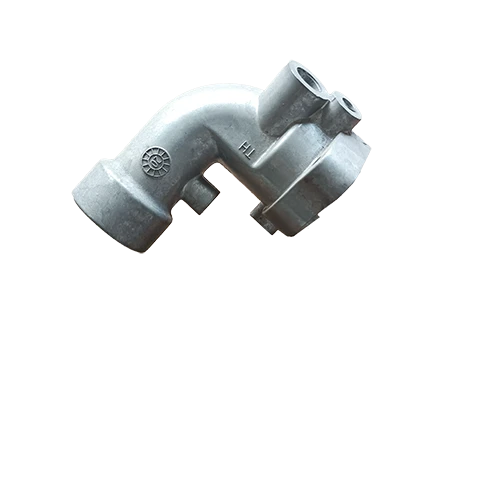
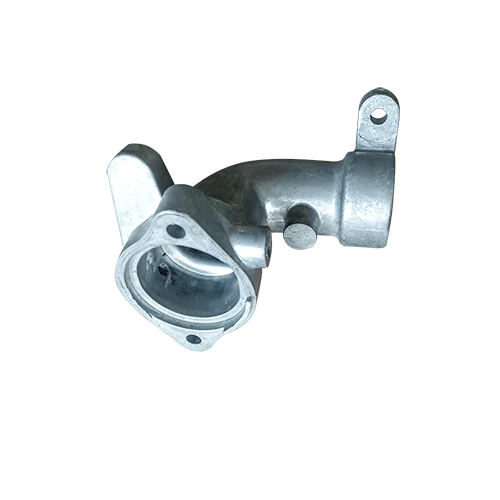
3. Semi-Solid Processing: Innovating Magnesium Alloys
Semi-solid processing is a revolutionary technique for producing magnesium and aluminum alloy castings. This method addresses the challenges of traditional die casting, such as poor performance and high costs. It allows for thinner wall thicknesses (1-1.5mm) and improved mold design, making it ideal for lightweight automotive components.
Magnesium alloys, in particular, are gaining traction due to their high strength-to-weight ratio, heat resistance, and corrosion resistance. According to National Institute of Standards and Technology (NIST), advancements in magnesium alloy casting are critical for achieving energy-efficient vehicles. The global annual growth rate for magnesium die casting in the U.S. and Europe is projected to reach 25%.
4. Integrated Design: Reducing Weight and Cost
Integrated design is a growing trend in automotive casting, focusing on optimizing part structures to reduce weight and manufacturing complexity. By consolidating multiple components into a single casting, manufacturers can cut down on machining processes and material usage. This approach aligns with the industry's push for energy efficiency and cost reduction.
For instance, engine manifolds produced through integrated casting are lighter and more durable, enhancing engine performance while lowering production costs.
Technical Specifications of Automotive Casting Products
| Parameter | Einzelheiten |
|---|---|
| Material | ADC-12, A380 |
| Process | High-pressure casting |
| Weight Range | 0.5-2 kg |
| Scrap Rate | 2-5% (advanced technologies) |
| Applications | Engine components, water pumps, manifolds |
Applications of Advanced Casting Technologies
Modern casting technologies are transforming various automotive applications:
- Powertrain Components: High-strength alloys ensure durability in engines and transmissions.
- Electronics Cooling: Automotive electric water pumps efficiently manage heat in electric vehicles (EVs).
- Structural Parts: Lightweight magnesium and aluminum castings improve fuel efficiency and safety.
Hebei Yuanda Trade Co., Ltd.: A Leader in Automotive Solutions
Based in Hebei, China, Hebei Yuanda Trade Co., Ltd. specializes in producing high-quality automotive casting products. The company leverages advanced technologies to deliver components that meet international standards. Their product range includes automobile water pumps, engine manifolds, Und automotive electric water pumps, which are widely used in both traditional and electric vehicles.
Yuanda's commitment to innovation is evident in its adoption of semi-solid processing and integrated design principles. By aligning with global trends, the company is positioned to meet the growing demand for lightweight, high-performance automotive parts.
Environmental and Economic Impact
Advanced casting technologies contribute to sustainability by reducing material waste and energy consumption. For example, the low scrap rates achieved through digital design optimization minimize environmental pollution. Additionally, lightweight components lower fuel consumption, directly reducing greenhouse gas emissions.
From an economic perspective, these technologies enable manufacturers to cut production costs while maintaining quality. As highlighted by NIST research, the integration of digital tools in casting processes is a key driver for competitiveness in the automotive industry.
Future Trends and Challenges
The automotive casting industry faces several challenges, including the need for further material innovation and the adoption of greener practices. However, opportunities abound in emerging markets, particularly in EV production. According to NIST, future advancements will focus on:
- Developing ultra-lightweight materials
- Enhancing automation in casting processes
- Improving recycling methods for metal alloys
Conclusion
Automotive casting technologies are at the forefront of innovation, driving the industry toward greater efficiency, sustainability, and performance. Companies like Hebei Yuanda Trade Co., Ltd. are pivotal in translating these advancements into practical solutions. As the demand for eco-friendly and high-performance vehicles grows, the role of advanced casting technologies will only become more critical.
References
National Institute of Standards and Technology (NIST). (n.d.). Retrieved from https://www.nist.gov/.
Hebei Yuanda Trade Co., Ltd. (n.d.). Automobile Accessories. Retrieved from https://www.ydcastings.com/automobile-accessories.html.
-
Materials Used in Manufacturing Cap End Pipe FittingsNachrichtNov.24,2025
-
Material Properties of CF8M CastingNachrichtNov.24,2025
-
How to Inspect Pump Cap Ends for DamageNachrichtNov.21,2025
-
Backward Curved Impeller – Efficient Airflow Solutions for Industry | YD CastingsNachrichtNov.21,2025
-
Automobile Water Pump - Efficient, Quiet, Durable & ElectricNachrichtNov.21,2025
-
Impeller for Pumps – High-Efficiency, Durable, OEM-ReadyNachrichtNov.21,2025











